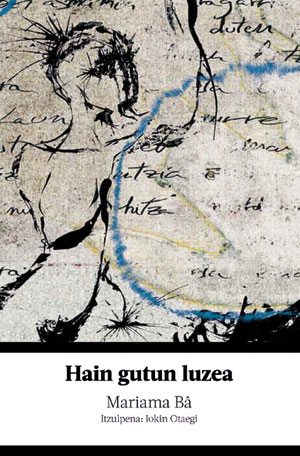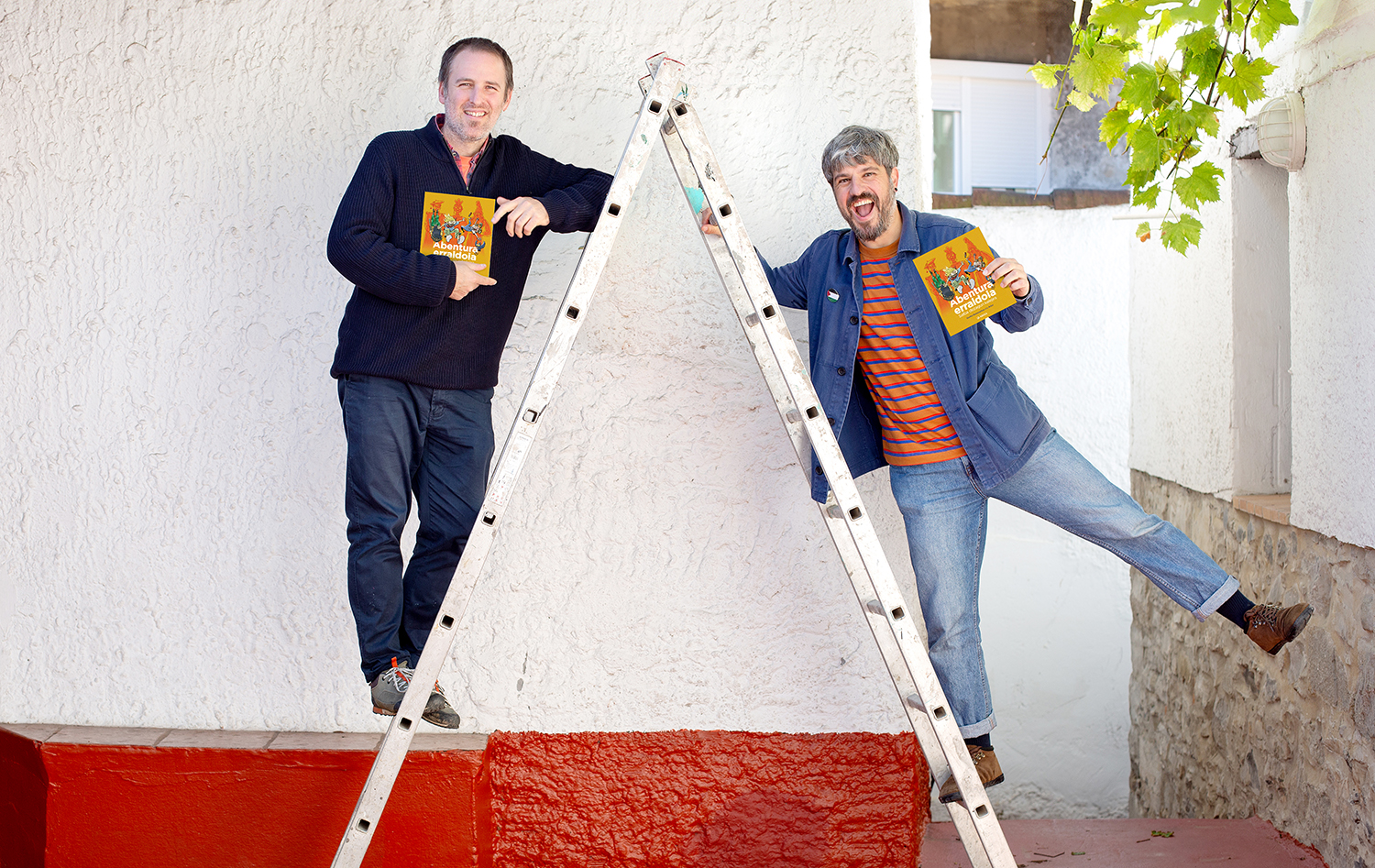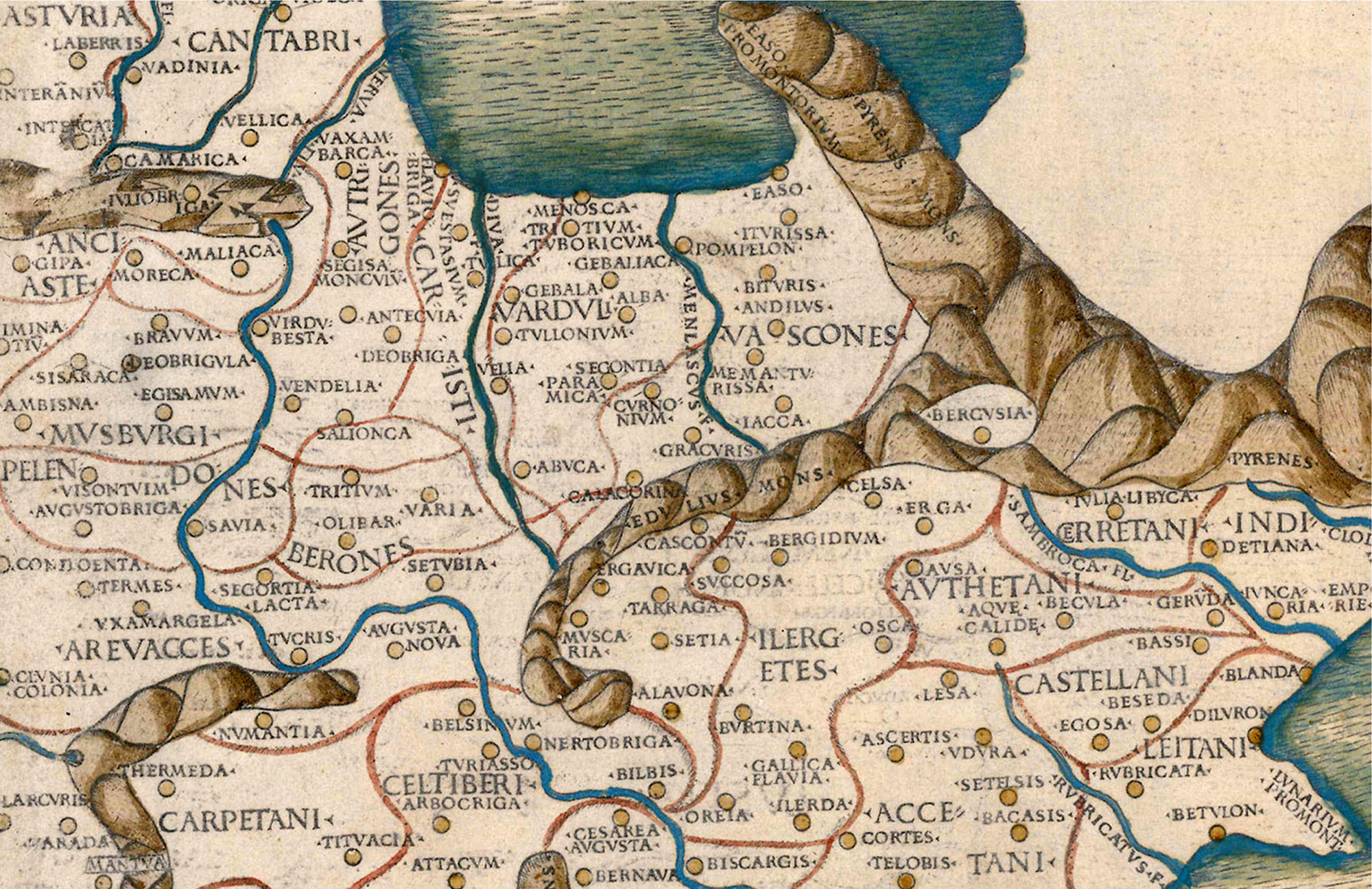
As Josune Muñoz says in the speech, so far we have had few occasions to read the African literature in Basque, and that changes the translation of Iokin Otaegi and EDO! A long letter from Mariama Bâme thanks to the initiative of the editorial. The novel is structured as a letter from section 27. Ramatulaye writes to his friend Aissatou a letter in the forty days of mourning that he has to go home after sending from his husband. There he will unravel the ups and downs of the lives of both, making a chronicle of two Senegalese women who are in the whirlwind of change after decolonization.
The form of the letter allows us to make the leap from the particular to the collective: it brings us from the school age of two people to the teaching profession, from marriage to sons and daughters, and from the polygamy suffered to different ways of coping with it. According to Muñoz, the narrator “will empty his interior” making the way from the staff to the politician and sewing the links between the couple, the family and the nation.
These first progressive women are representatives of the new Africa: “The privilege of our generation has been to be the key between two historical eras; that of dependence, that of independence.” They are well aware of the sociopolitical responsibility of their generation, and socialism and feminism are the main axes of change: “The living waters over the liberation of the woman who hangs the world do not leave me indifferent.” However, they know that all they have received from whites is not gold and that they dance between two fires: “Between the bad passions brought from the outside and the blind resistance of the old virtues, it is a society that is agitated in its deep foundations.”
Traditional and modern thinking is embodied in different characters: Farmata is an antagonist, from the Ramatulaye neighborhood, “his truth could not be mine,” he tells us at one point the protagonist, reflecting the different mentalities among them. Polygamy is the subject that most deeply deals with, as in his words it only brings with it misery or loneliness, the terrible consequences of what has been called “impediments, lies and injustices that have borne the burden of consciousness”.
Motherhood and the new generations are also very present. This is how the first defines: “Mothers able to understand the inexplicable... to cope with the flood.” His twelve children are represented by the new generations: “It’s the image of the couple I dream of,” he says when talking about his older daughter, Dan, and his partner. His ingenuity and his sagacity fill him with wonder and joy: “But this child was right for you.”
Finally, love and friendship are the basic pillars of his life, and although love is “the palate and salt of life”, he says that “friendship has a greatness that does not know love.” It is a sign of your friendship with Aissatou who speaks noka, which we thank the translator. With the desire to continue to know the literature of African writers, we will follow Muñoz's recommendation seeking the works of Ken Bugul and Fatou Diome. Namely, perhaps one day, in the hope that they will also be in Basque.
Leaving behind books, libraries and their benefits in April, Kabiak Sahrawi wishes to recall the dark side of his history, which is of greater importance in defending the identity and survival of peoples. We are talking about the destruction of the age-old and usual libraries... [+]





















